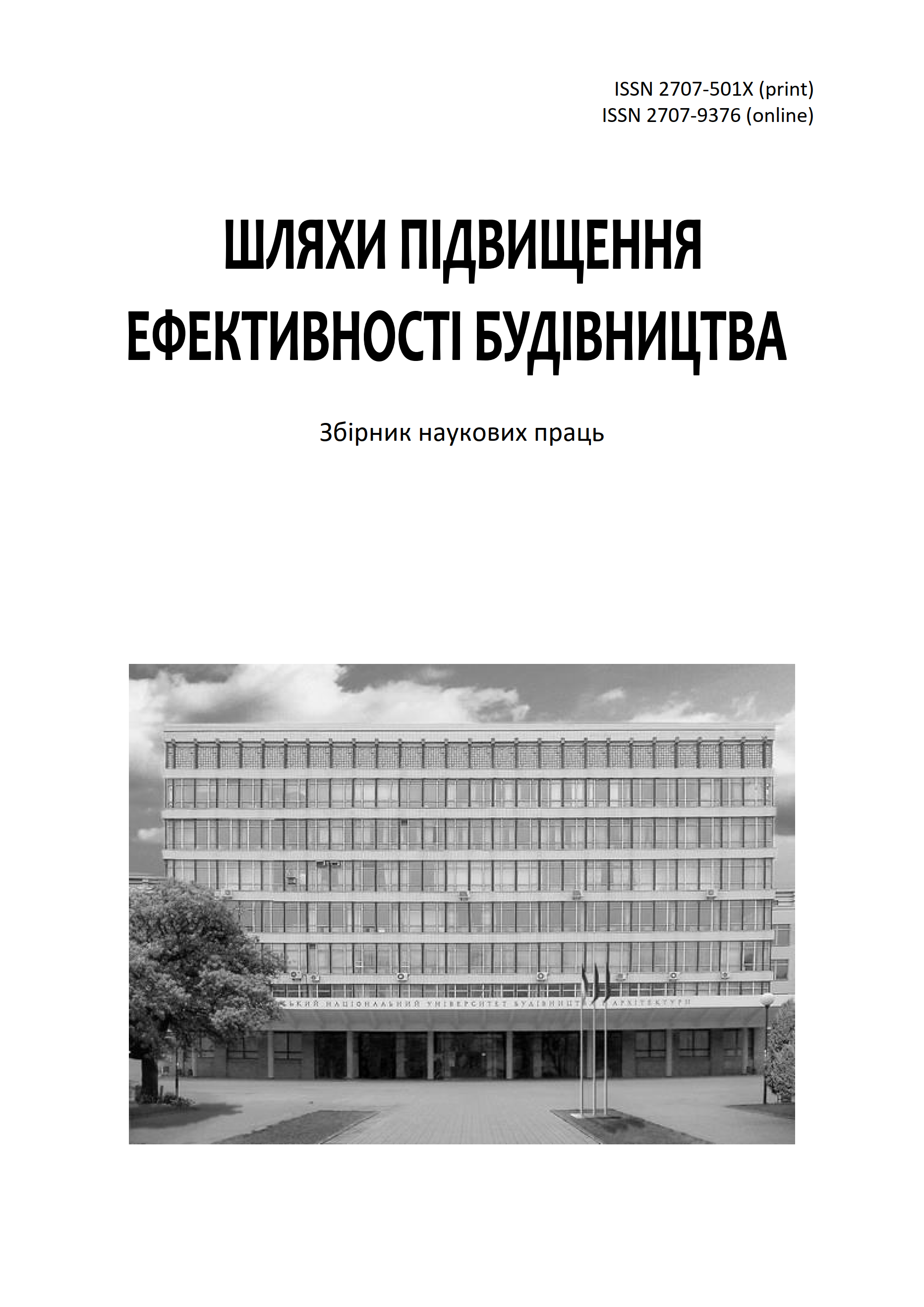Modernization of operational and analytical indicators of functional and technological reliability of development construction projects
Keywords:
organizational and technological reliability, construction project, the rejection process, parametric evaluationAbstract
The article discusses the background and main aspects need to update modern paradigm of construction organizational and technological planning, it changes according to the current understanding of providing comprehensive reliability construction projects realization as flow multiplier set of key indicators of a project. Considered flaws of one of the most common methodology in prior definition of organizational and technological reliability of the construction project, which belongs to the single-purpose optimization problems and concerns predicting the probability of an execution process with given parameters.
Modernization of operational and analytical indicators of functional and technological reliability of development construction project executors is a key aspect of improving construction processes and ensuring the quality of work. This abstract explores modern strategies and methods aimed at improving the efficiency and reliability of construction projects. Tools and approaches to measuring functional and technological reliability are analyzed, including the use of metrics for problem response time, problem solving efficiency, and overall performance. Models and methods for predicting risks associated with the technical aspects of construction and operation of facilities are considered. Particular attention is paid to the development of integrated approaches to monitoring and data analysis that allow for the prompt identification of potential problems and avoidance of negative consequences. Examples of the introduction of modern technologies, such as artificial intelligence, data analytics and the Internet of Things, into construction control systems are provided. The advantages of these innovative approaches in ensuring the quality and timeliness of construction works, as well as reducing the risks of functional disruptions are highlighted. The analysis of these approaches allows us to determine the optimal strategies for modernizing operational and analytical indicators of functional and technological reliability in development construction projects.
References
Gusakov A.A. (1974) Organizational and technological reliability of construction production (in the conditions of automated design systems Stroyizdat. 252 p.
A.A. Gusakov, S.A. Veremeenko, A.V. Ginsburg, etc. (1974) Organizational and technological reliability of construction / [edited by A.A. Gusakov. Sv R - Argus, 1994 472 p.
Organizational, technological and economic reliability in construction. V.R. Mlodetsky, R.B. Tian, V.V. Popova, A.A. Martysh: Science and Education, 2013. 193 p.
Antipenko E.Y., Donenko V.I. (2005) Principles of capital investment analysis. Zaporizhzhia: Fazan; Wild Field, 420 р.
Kuznetsov S.M., Legostaeva, O.A., Mikhalchenko O.Y. et al. (2008) Organizational and technological reliability of construction processes Stroitelstvo. Issue 6. Р. 57-65.
Research of modern methods of realization of construction projects. Modern technologies and methods of calculations in construction. 2018. Issue 9. Р. 149- 158.
Brennan M. D. (2011) Integrated project delivery: a normative model for value creation in complex military medical projects. University of Illinois at Urbana-Champaign. ISBN 1-267-15486-1.
Grigorovsky P.E., Chukanova N.P., Gorda O.V. (2019) Information environments in construction. Construction production. Issue 68. Р. 15-19.
Ryzhakova G. M. (2022) Modern vector of construction development renewal in the context of Integrated Project Delivery strategies. Management of the development of complex systems. Issue 49. Р. 113-123.
Innovative technology for assessing the quality of management of construction contractors. Management of the development of complex systems. 2017. Issue 32. Р. 146-152.
Ryzhakova G.M., Prykhodko D.O., Pokolenko V.O., Petrukha N.M., Chupryna Y.A., Khomenko O.M. (2022) Update of scientific and methodological approaches to the construction of a multi-criteria system for managing the activities of enterprises-stakeholders of projects. Spatial development. Issue 1. P. 218-233.
Ryzhakov D.A., Pokolenko V.O., Petrukha S.V., Ivakhnenko I.S., Predun K.M., Prykhodko O.O., Nikolayev G.V. (2022) Information and analytical innovations and business models of enterprise management in the modern system of construction development. Management of the development of complex systems. Issue 52. Р. 103-112.
Tugai O.A., Hryhorovskyi P.Ye., Khyzhniak V.O., Stetsenko S.P., Bielienkova O.Yu., Molodid O.S., Chernyshev D.O. (2019) Organizational and technological, economic quality control aspects in the construction industry: collective monograph. Lviv-Toruń: Liha-Pres, 136 p.
Livinskyi O.M., Kliuiev V.V., Savenko V.I. , etc. (2018). Menedzhment yakosti v budivnytstvi ta vyrobnychi orhanizatsiini systemy: monohrafiia. Kyiv: Tsentr uchbovoi literatury. 230 р.
Ekonometrychnyi instrumentarii upravlinnia finansovoiu bezpekoiu budivelnoho pidpryiemstva: monohrafiia. Kyiv: KNUBA, 2017. 404 р.
Sorokina L.V., Hoiko A.F., Kovalenko Ye.S. (2019) Benchmarkinhove otsiniuvannia nadiinosti kontrahentiv budivelnykh pidpryiemstv u nestabilnomu ekonomichnomu seredovyshchi. Budivelne vyrobnytstvlo. Issue. 68. Р. 78-84
Downloads
Published
How to Cite
Issue
Section
License

This work is licensed under a Creative Commons Attribution 4.0 International License.
Authors who publish with this journal agree to the following terms:
- Authors retain copyright and grant the journal right of first publication with the work simultaneously licensed under a Creative Commons Attribution License that allows others to share the work with an acknowledgement of the work's authorship and initial publication in this journal.
- Authors are able to enter into separate, additional contractual arrangements for the non-exclusive distribution of the journal's published version of the work (e.g., post it to an institutional repository or publish it in a book), with an acknowledgement of its initial publication in this journal.
- Authors are permitted and encouraged to post their work online (e.g., in institutional repositories or on their website) prior to and during the submission process, as it can lead to productive exchanges, as well as earlier and greater citation of published work (See The Effect of Open Access).

